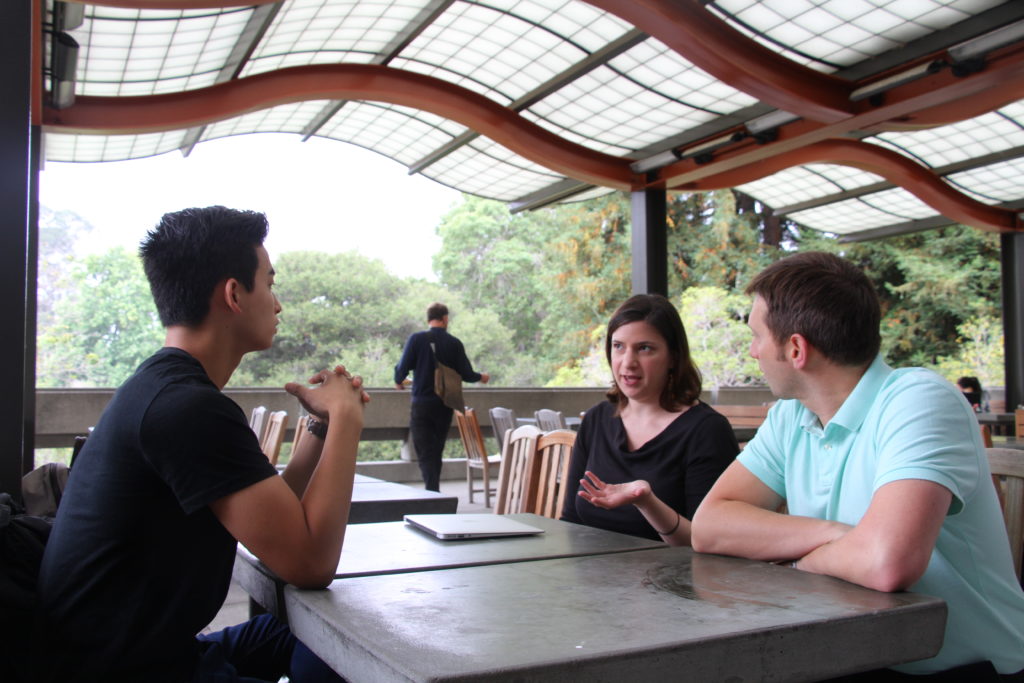
Going to college ain’t cheap, what with tuition, room and the ubiquitous yet mysteriously named board. (Does anyone know what that last one actually means?)
If that weren’t enough, the cost of course materials have soared to sky-high levels. Textbook prices have risen 88 percent in the past decade, according to a 2016 Bureau of Labor Statistics report. And with undergrads here expecting to pay about $900 — a low figure for some — on books and materials this academic year, students are shouldering a large burden.
“This is something that every major university is grappling with,” says Rachael Samberg, scholarly communication officer at the University Library at UC Berkeley, who is directing a cross-campus effort to provide students with free and openly available course materials starting this fall.
The pilot programs, with support from the Arcadia Fund, are broken into three parts: providing free course packs — the often hefty sheafs of assigned readings that students are usually expected to pay for; paying professors to switch to free digital versions of their books; and supplying grants for the creation of new, openly accessible course texts.
The first two — the free course packs and the digital versions of course materials — are available starting this semester, and the new course materials — referred to as open educational resources — will be available this spring or next fall.
More than 20 classes, with subjects ranging from economics to earthquakes and class sizes ranging from 15 to 350 students, are part of the pilots.
Daniel A. Rodríguez, a professor of city and regional planning who arrived at UC Berkeley last year, is familiar with the concept of free class materials for students. Previously, when he was working at the University of North Carolina at Chapel Hill, he took it upon himself to scan readings and make them freely available as PDFs for his students.
Expecting students to pay $300 for a course pack, he said, was “unconscionable.”
So when an email popped into his inbox asking if he was interested in the pilot, it was a no-brainer.
“This was just a much more institutionalized and easy way to do it,” he said.
This year, instead of each student paying a total of $150 for a roughly 600-page course pack, students in Rodríguez’s undergraduate course, called Sustainable Mobility, will have access to online readings.
The cost for students to access the materials? Free.
“(This is) a very, very welcome outcome,” he said.
In addition to providing students with free course materials, and professors with grants totaling roughly $25,000 to make it all possible, the initiative provides fair use counseling to professors who choose to participate, which eliminates the fee — which is passed on to students — that commercial copy centers charge to legally clear the material they’re reproducing.
Based on the findings from the pilots, the project team will provide recommendations about the next steps to achieve broader reach across campus.
Regardless of what lies ahead, the pilot programs alone have a potential impact that reaches far beyond Berkeley, Samberg said.
The creation of new course materials, for example, offers a chance to provide students with cutting-edge, and even interactive, textbooks, and those materials will be available to anyone wishing to access or download them from around the world for years to come.
“We’ve got the innovation on campus to take (ideas) and make them a reality to benefit a global community,” Samberg said.